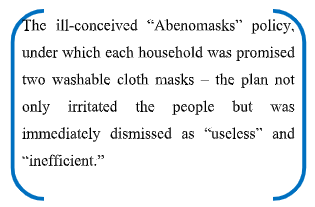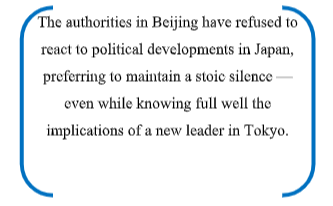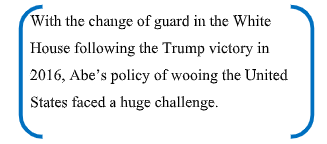Shamshad A. Khan, Visiting Associate Fellow, ICS, New Delhi and
Assistant Professor, Department of Humanities and Social Sciences, BITS Pilani Dubai Campus.
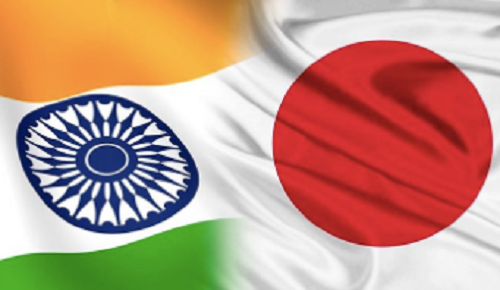
Weeks before a scheduled virtual India-Japan summit meeting, Japanese Prime Minister Shinzo Abe’s announcement to step down from the office citing his deteriorating health, have been received as a surprise and shock in India. As the ruling Liberal Democratic Party is engaged in electing Abe’s successor, it is unlikely that the meeting will be held on scheduled time. Ministry of External Affairs is also non-committal about the scheduled meeting. Irrespective of the cancellation of virtual summit meeting, Abe’s absence will be felt in India and especially the Indian strategic circles for a long time to come even though his departure is unlikely to derail the bilateral engagement process.
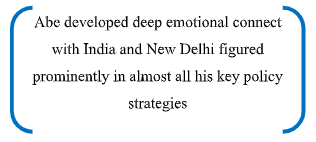
When it comes to India-Japan relations, Abe is regarded very high among the Indian strategic circles and media for strengthening the bilateral relationship. Undoubtedly, Abe has played a leading role in strengthening India-Japan relations during his previous short stint which ended in 2007 and during the present term which started in December 2012. He attached special importance to India-Japan relations much before he assumed the top post. While he was still serving as a Japanese Cabinet Secretary during Junichiro Koizumi’s regime, he envisioned in his most talked about book “Towards a Beautiful Japan” that in the coming decades India-Japan relationship will “overtake” Japan-US and Japan-China relations. He had developed deep emotional connect with India as we witnessed that New Delhi figured prominently in almost all his key policy strategies starting from confluence of the two Seas, (now evolved as Indo-Pacific) Asia’s Democratic Security Diamond and the Quadrilateral Initiatives envisioned in 2007 and revived in 2013. Why India was so special to Abe? Tomohiko Taniguchi an advisor to the prime minister and an speech writer for Abe once told this author that Abe spent his childhood with his maternal grandfather Kishi Nobusuke who held India in high esteem shared his memories of his India’s visit to Abe especially how India treated him when he visited India on his first overseas visit in 1957.
Indian Prime Minister Nehru offered Kishi Nobusuke a big platform to address a large gathering of Indian audience from the rampart of the historic Red Fort from where only the Indian Prime Ministers address to the nation on every Independence Day. At that time, the memory of Imperial Japan was afresh among the Asian countries and no Asian country was keen to give such a platform to a Japanese leader and Kishi Nobusuke was moved by this gesture offered by the Indian leadership. In a speech delivered at New Delhi based Indian Council of World Affairs in 2011, Abe noted that his grandfather’s visit to New Delhi before embarking on a US trip provided him much needed “political capital” to bargain with America with whom Kishi was going to renegotiate the revision of US Japan security treaty. While the Cold War politics dampened the chances of fostering a closer cooperation between India and Japan, Abe driven by the emotional connect and compelled by the strategic needs saw India as an inalienable partner in Japan’s National Security Strategies and Defense planning. Japan’s first National Security Strategy unveiled during Abe’s second term in September 2013 noted India’s ascendance and considered it as an important player to strengthen its relations “in a broad range of fields, including maritime security, through joint training and exercises as well as joint implementation of international peace cooperation activities.” Considering the fact that from Kishi to Koizumi, America was considered ‘first, second and third’ important country for Japan, the special importance Japan acceded to India during Abe’s period was considered as Japan’s acceptance of India as an important partner.
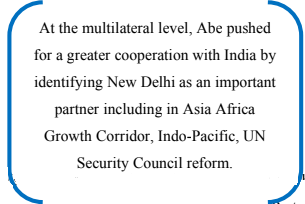
Abe, indeed, invested his energy to strengthen India-Japan relations when he assumed office after Koizumi left the scene soon after signing the bilateral Strategic Partnership in 2006 which gave much needed institutional backing to Japan’s relationship with the south Asian country. But he could not leave a mark on the bilateral relationship during his first stint as Abe held only one summit level interaction with the then Indian Prime Minister Manmohan Singh. In his second term in office, India-Japan relations progressed in a faster pace as Abe held seven summit level interactions with his Indian counterparts- two with Manmohan Singh and five with Narendra Modi. At the bilateral level, signing of the long pending India-Japan civil nuclear cooperation agreement, upgrading the ‘two plus two’ strategic dialogue to ministerial level, an annual Maritime Affairs Dialogue, an in principle agreement on Acquisition of Cross Services Agreement which will give a fillip to bilateral defense cooperation, signing the contract to lay first Shinkansen project between Mumbai and Ahmedabad and upgrading the currency swap agreement to 75 billion US dollar are a few agreement during his last tenure which will be remembered as Abe’s legacy on India-Japan relations. At the multilateral level he pushed for a greater cooperation with India by identifying New Delhi as an important partner including in Asia Africa Growth Corridor, Indo-Pacific, UN Security Council reform
Since Abe has left a deep imprint on India-Japan relations, it is quite natural that Indian media and New Delhi is missing his presence and is speculating the fate of India-Japan relationship post Abe. In the past, similar concerns also came to the fore in 2009 from the Indian strategic circles, when Japan was undergoing a regime change and in Japan in 2014 when change of government was certain in India. Since the Liberal Democratic Party which has forged the strategic partnership with India in 2006 lost power to the Democratic Party of Japan (DPJ)-a party which sought to forge an equidistant security relationship between the US and China, it was believed that India-Japan relationship will be derailed. For those who believed that India-Japan relationship is a byproduct of a burgeoning US-India relations post Indo-US nuclear deal, it was quite natural to believe so. But belying those speculations, the DPJ showed keen interest in taking the bilateral relationship forward. In fact, the negotiation on the civil nuclear cooperation agreement started during the DPJ regime and a landmark Comprehensive Economic Partnership Agreement to uplift abysmal bilateral trade volume was signed. Similarly, when Manmohan Singh who is considered as an architect of modern India-Japan relations had various official meetings with Japanese government in the capacity of Finance Minister and Prime Minister of India, questions were raised about the fate of India-Japan relationship post Manmohan Singh. But the ruling Bhartiya Janata party continued the momentum in the bilateral ties and deepened it further. This is enough to suggest that India-Japan relationship enjoys a bi-partisan support both in India and Japan and will remain immune to the political changes at the domestic levels. Moreover, India-Japan relationship is no more personality driven as was the case during the Cold War period.
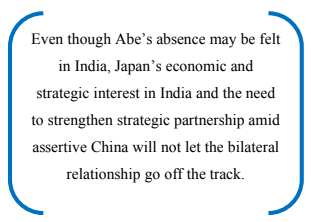
The bilateral relationship is much more “institutionalised” as both the countries have made a commitment in 2006 strategic partnership to hold a prime ministerial level meeting annually and it is evident that the change of government has not had any negative impact on the bilateral relationship. In addition to this, India-Japan relationship, thanks to the strategic partnership, is much more diverse. Apart from the bilateral level dialogues, they are engaged in various multi-lateral dialogues including on UN Security reforms, a quadrilateral dialogue involving US and Australia and two prominent trilaterals- JIA consisting of Japan, India and Australia and JAI-consisting of Japan, America and India. These bilaterals and multilaterals will continue to bind Japan and India together.
Moreover, most of the probable successors of Abe including Fumio Kishida, Shigeru Ishiba, Taro Kono, Toshimitsu Motegi and the top contender Yoshihide Suga have dealt with India in different ministerial capacities and India is no stranger to them. Even though Abe’s absence may be felt in India, Japan’s economic and strategic interest in India and the need to strengthen strategic partnership amid assertive China will not let the bilateral relationship go off the track.
